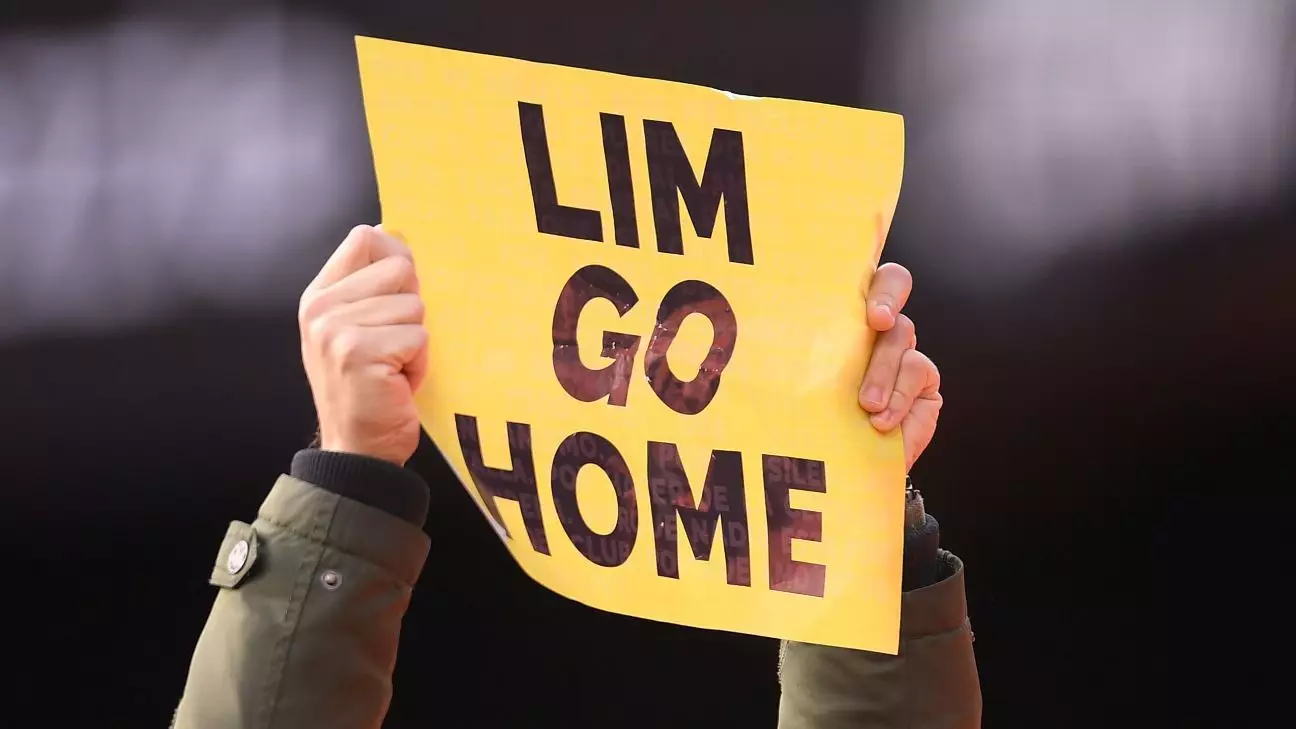The recent controversy surrounding a Spanish couple in Singapore has spotlighted the delicate balance between personal expression and government regulations in the city-state. This couple, newlyweds Dani Cuesta and Mireia Sáez, quickly became embroiled in legal troubles after demonstrating against billionaire Peter Lim’s ownership of LaLiga club Valencia. Lim, a prominent figure in the football world, acquired the financially struggling Valencia FC in 2014 through his investment company Meriton Holdings. Since then, his management has faced widespread criticism, primarily from passionate fans unsettled by the sale of popular players and the constant managerial changes.
The issue at hand raises important questions about the right to protest in Singapore, a nation known for its strict laws governing public assembly. The couple took part in what officials classified as a “public assembly” without the necessary permits, likely making them vulnerable to financial penalties or other repercussions. In this tightly controlled environment, protests—such as showing a banner that reads “Lim go home”—are not only frowned upon but can lead to serious consequences. This incident has served to highlight the potential risks involved for individuals wishing to express dissent in a society that often prioritizes order over free expression.
The couple’s family has requested privacy during this tumultuous time, underscoring the broad implications of the situation. The apprehension felt by their family reflects a growing concern about the treatment of citizens and tourists alike within Singapore’s legal framework. As the investigation unfolds, the participation of the Spanish embassy in providing assistance suggests that ramifications may extend beyond the couple’s immediate legal troubles. Such cases can affect international perception of Singapore, particularly regarding human rights and personal freedoms.
The unrest among Valencia fans mirrors broader themes of ownership and accountability, as fans feel disenfranchised by decisions made by billionaire owners who may not fully comprehend the club’s significance to its supporters. The criticism of Lim points not only to a troubled football club but also to a yearning for a more engaged model of governance. Individuals like Lim may possess the financial resources to sustain clubs but often lack the emotional investment and understanding that come from a long-standing connection to the team.
As Singapore navigates the complexities of entitlement to protest within its legal confines, the case of Cuesta and Sáez serves as a poignant reminder of the continuous struggle between state authority and individual freedoms. As the couple’s fate hangs in the balance, it remains compelling to observe how this incident will shape future discourse on public assembly rights in an era where expressions of dissent are becoming increasingly significant globally. Ultimately, it raises critical questions about what it means to genuinely engage with dissent and how far individuals can go to voice their concerns without facing legal repercussions.

Leave a Reply